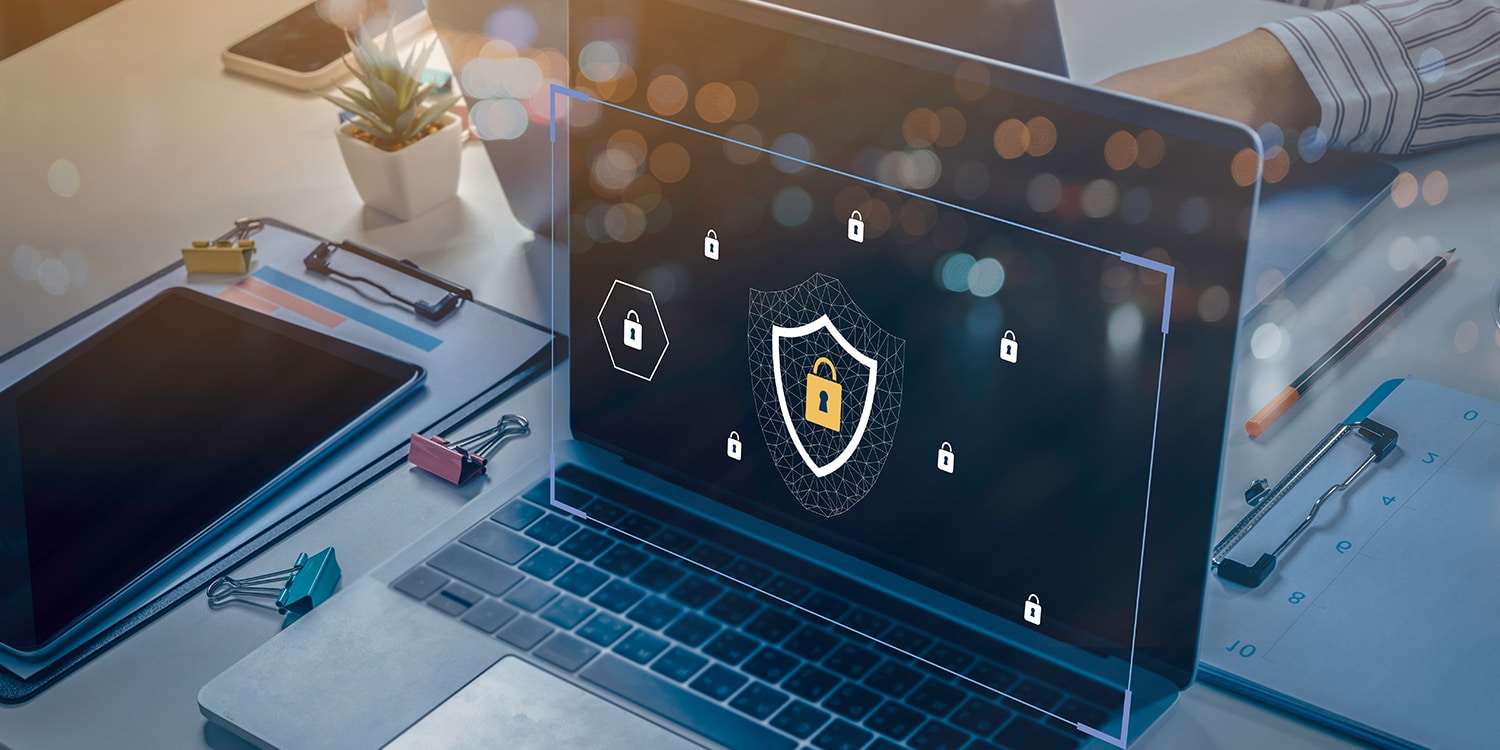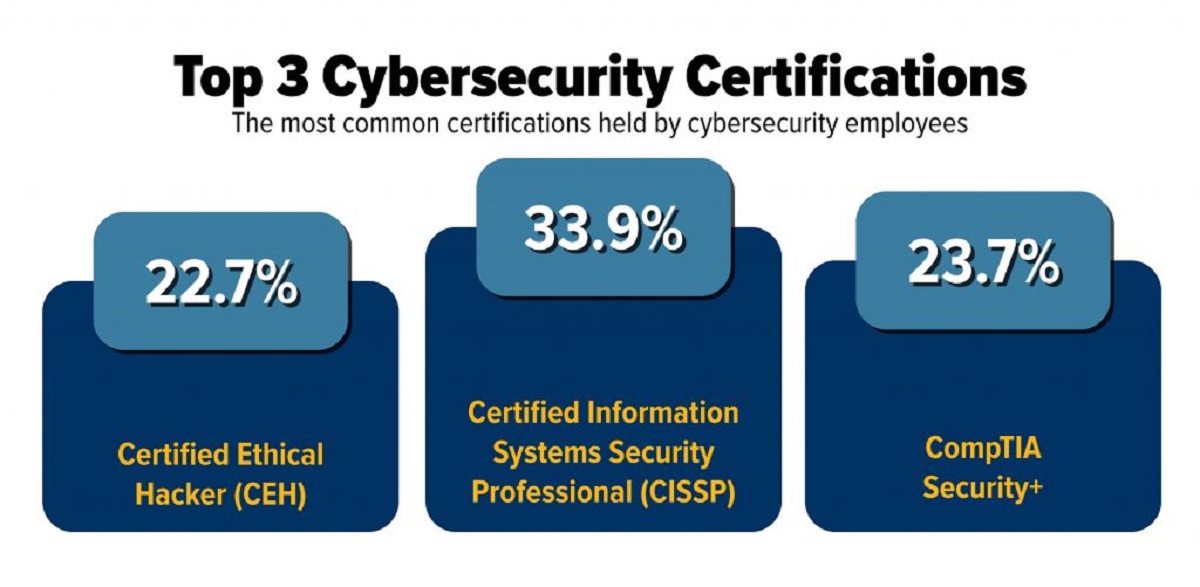Introduction
Welcome to the exciting world of cybersecurity! With the ever-growing reliance on technology in our daily lives, the need for skilled cybersecurity professionals has never been greater. If you’re considering pursuing a cybersecurity degree, you may be wondering how long it will take to complete. The duration of a cybersecurity degree program can vary depending on various factors. In this article, we will explore the different factors that can affect the time it takes to earn a cybersecurity degree.
First and foremost, it’s important to note that cybersecurity degrees are available at various levels, including associate, bachelor’s, master’s, and doctoral degrees. The time it takes to obtain a degree will depend on the specific level you intend to pursue. Additionally, the length of a cybersecurity degree program can vary depending on the educational institution and the type of program you choose.
Several factors can affect the duration of your cybersecurity degree journey. These factors include the type of program you enroll in, your level of commitment and availability, the recognition of prior experience or transfer credits, and whether you are pursuing the degree on a full-time or part-time basis.
In the following sections, we will explore different types of programs and their impact on the duration of your cybersecurity degree. We will discuss traditional four-year programs, accelerated programs, online programs, part-time programs, dual degree programs, transfer credits and prior experience, as well as certification programs. By understanding these options, you will be better equipped to make an informed decision about the timeframe for earning your cybersecurity degree.
Factors That Affect the Time to Get a Cybersecurity Degree
Obtaining a cybersecurity degree requires a significant investment of time and effort. Various factors come into play when determining the duration of your cybersecurity degree journey. Understanding these factors can help you plan and make informed decisions. Let’s take a closer look at some of the key factors that can affect the time it takes to earn a cybersecurity degree.
1. Level of Degree
The level of degree you choose to pursue will greatly impact the time it takes to complete your cybersecurity education. An associate degree typically takes around 2 years, while a bachelor’s degree averages around 4 years. Master’s and doctoral degrees can take an additional 1-3 years, depending on the program’s requirements.
2. Type of Program
The type of program you enroll in can also influence the duration of your studies. Traditional four-year degree programs follow a semester-based structure, while accelerated programs offer a condensed curriculum to expedite the learning process. Online programs provide flexible scheduling options, allowing you to study at your own pace. Meanwhile, part-time programs accommodate working professionals by spreading coursework over a longer period.
3. Prior Experience and Transfer Credits
If you have prior experience in the field of cybersecurity or have completed relevant coursework, you may be eligible for transfer credits. These credits can shorten the overall duration of your degree by exempting you from certain courses. Additionally, some institutions offer credit for industry certifications, allowing you to fast-track your studies.
4. Dual Degree Programs
For students looking to expand their skill set and knowledge, dual degree programs offer the opportunity to pursue two degrees simultaneously. This can be beneficial if you wish to specialize in a specific area alongside your cybersecurity degree. While dual degree programs require more coursework, they can save time compared to pursuing the two degrees separately.
5. Certification Programs
Obtaining industry certifications in cybersecurity can enhance your credentials and increase your employability. While these certifications are not degrees, they can be valuable additions to your cybersecurity education. Depending on the certification program you pursue, the duration can range from a few months to a year.
By considering these factors, you can better estimate the time it will take to complete a cybersecurity degree. It’s important to conduct thorough research, consult with academic advisors, and carefully evaluate your personal circumstances to make an informed decision regarding the most suitable pathway for your cybersecurity education.
Traditional Four-Year Degree Programs
Traditional four-year degree programs are the most common pathway for earning a cybersecurity degree. These programs are typically offered by universities and colleges and follow a semester-based structure. They provide a comprehensive curriculum that covers both theoretical knowledge and practical skills essential for a career in cybersecurity.
Four-year degree programs typically require students to complete a certain number of credit hours, which are spread across various courses. These courses encompass core cybersecurity topics such as network security, cryptography, ethical hacking, and digital forensics. Additionally, students may be required to take general education courses in subjects like mathematics, communication, and social sciences.
The duration of a traditional four-year degree program is around 4 years, assuming that students are enrolled on a full-time basis and taking a standard course load each semester or quarter. However, the actual time to completion may vary depending on individual factors such as credit transfer, prior experience, and course availability.
One advantage of traditional four-year degree programs is that they provide a well-rounded education, exposing students to a wide range of cybersecurity concepts and allowing for deeper understanding and specialization in specific areas of interest. Furthermore, these programs often offer opportunities for internships, cooperative education, or research projects, providing hands-on experience that can enhance career prospects.
While four-year degree programs offer comprehensive cybersecurity education, some students may find the time commitment challenging or may already possess relevant skills and knowledge. In such cases, alternative pathways, such as accelerated programs or online programs, may be worth considering.
It’s important to carefully evaluate your goals, time availability, and financial resources when deciding which pathway to pursue. Traditional four-year degree programs can provide a solid foundation in cybersecurity, but it’s crucial to ensure that this option aligns with your personal circumstances and career aspirations.
Accelerated Programs
For individuals looking to expedite their journey towards a cybersecurity degree, accelerated programs offer an attractive option. These programs are designed to condense the curriculum and allow students to complete their degree in a shorter timeframe compared to traditional programs.
Accelerated programs typically follow an intensive format, where students take a higher number of courses per semester or quarter. This means they need to be prepared for a more rigorous and demanding academic workload. These programs may require students to attend classes during the fall, spring, and summer semesters, allowing them to complete the required credits in a shorter duration.
The duration of accelerated programs can vary, but they generally allow students to graduate with a cybersecurity degree in less than the usual four years. Some programs offer options to complete the degree in as little as two or three years, providing an accelerated pathway to enter the cybersecurity job market sooner.
One of the main advantages of accelerated programs is the time and cost savings. By completing the program in a shorter duration, students can enter the workforce earlier and start building their careers. This can be particularly advantageous in a rapidly evolving field like cybersecurity, where job opportunities are abundant and employers value practical skills and experience.
However, it’s important to note that accelerated programs require a high level of commitment and dedication. The condensed nature of the curriculum means that students may need to sacrifice other commitments, such as part-time jobs or extracurricular activities, to focus on their studies.
Additionally, the fast-paced nature of accelerated programs may result in a more focused curriculum, limiting the depth of coverage in certain cybersecurity topics. It’s crucial for students to carefully research the program’s curriculum to ensure that it aligns with their career goals and interests.
Accelerated programs may not be suitable for everyone, but they can be an excellent option for individuals who are motivated, have a strong work ethic, and are committed to completing their degree in a shorter timeframe. It’s important to weigh the benefits and challenges of accelerated programs against your personal circumstances and goals to make an informed decision.
Online Programs
In recent years, online programs have gained popularity as a flexible and convenient option for earning a cybersecurity degree. Online programs offer students the opportunity to study from anywhere, at their own pace, and on their own schedule.
Online programs are designed to deliver the same curriculum and academic rigor as traditional programs, but with the added flexibility of asynchronous learning. This means that students can access course materials, lectures, and assignments online and complete them according to their own availability.
The duration of online programs can vary depending on factors such as the program’s structure, the number of courses taken per semester, and the student’s pace. Online programs generally offer the same curriculum as traditional programs, spread over a similar duration. This means that a bachelor’s degree in cybersecurity obtained through an online program will typically take around four years to complete if students are enrolled on a full-time basis.
The main advantage of online programs is the flexibility they offer. Students can continue to work or fulfill other responsibilities while pursuing their degree. This makes online programs an attractive option for working professionals, parents, or individuals who prefer a self-directed learning environment.
Online programs often utilize technology-driven platforms that facilitate interactive discussions, virtual labs, and collaborative projects. These platforms help recreate the classroom experience in a virtual setting and foster communication and engagement among students.
Despite the convenience and flexibility, online programs require self-discipline and strong time-management skills. Without the structure of physical classes, students must stay motivated and set aside dedicated time for studying and completing assignments. It’s important to maintain regular communication with instructors and classmates to ensure a rich learning experience.
When considering an online program, it’s essential to choose an accredited institution that is recognized for delivering high-quality education. Accreditation ensures that the program meets established standards and that the degree earned is legitimate and respected by employers.
Online programs can provide a convenient and accessible pathway to obtaining a cybersecurity degree. Before committing to an online program, it’s essential to thoroughly research and evaluate the program’s curriculum, flexibility, and accreditation to make an informed decision that aligns with your educational and career goals.
Part-Time Programs
For individuals who are unable to commit to full-time studies due to work or personal obligations, part-time programs offer a flexible option to earn a cybersecurity degree. These programs are designed to accommodate the needs of working professionals, allowing them to pursue their education while balancing other commitments.
Part-time programs typically have a more relaxed schedule compared to full-time programs. Students can choose to take a reduced course load each semester or quarter, spreading their coursework over a longer period. This allows them to maintain a balance between work, family, and academics.
The duration of a part-time program can vary depending on the number of courses taken per semester and the student’s pace. While part-time programs are generally more flexible in terms of course load, they may extend the overall duration of the degree. For example, a bachelor’s degree that typically takes four years to complete on a full-time basis may take longer in a part-time program.
Part-time programs offer several advantages for students. Firstly, they allow individuals to continue working full-time or part-time, minimizing the financial impact of pursuing a degree. This can be particularly beneficial for those who need to support themselves or their families while studying.
Additionally, part-time programs provide students with the opportunity to slowly build their knowledge and skills over an extended period. This can be beneficial in a field like cybersecurity, where concepts are constantly evolving, and continuous learning is crucial.
Part-time programs may be delivered through in-person classes, online platforms, or a combination of both. Students should consider their learning preferences, support services, and resources available when choosing the format that suits them best.
One challenge with part-time programs is maintaining consistency and momentum. With a more extended duration, it can be easy to lose focus or delay completing courses. It’s essential for students in part-time programs to stay committed, establish a study schedule, and seek support from professors, classmates, or academic advisors when needed.
Part-time programs provide a pathway to earn a cybersecurity degree while accommodating the demands of work and personal life. It’s important to carefully plan and manage time to ensure progress and successful completion of the program. By maintaining a steady pace and staying dedicated, individuals can achieve their educational and career goals on their own terms.
Dual Degree Programs
Dual degree programs offer students the opportunity to pursue two degrees simultaneously, allowing them to acquire knowledge and skills in multiple fields. For those who wish to specialize in a specific area alongside their cybersecurity degree, dual degree programs can be an attractive option.
With dual degree programs, students typically complete the requirements for both degrees concurrently, saving time compared to pursuing the degrees separately. The specific structure of dual degree programs can vary, but they often involve a combination of coursework from both disciplines.
In the context of cybersecurity, common dual degree programs include combinations such as cybersecurity and computer science, cybersecurity and business administration, or cybersecurity and law. These combinations allow students to gain a deeper understanding of the technical aspects of cybersecurity while also developing complementary skills in another field.
The duration of dual degree programs depends on the specific requirements of each program. It’s important to note that the condensed nature of dual degree programs can result in an increased workload compared to pursuing each degree individually. However, by integrating coursework from both disciplines, students can often complete the degrees in less time than if they were pursued separately.
Dual degree programs provide several benefits. Firstly, they broaden students’ knowledge base and skillset, providing a well-rounded education that combines specialized cybersecurity expertise with expertise in another field. This can enhance career prospects and open doors to diverse job opportunities.
Additionally, dual degree programs often foster interdisciplinary collaboration, allowing students to develop a holistic understanding of the interplay between cybersecurity and other areas. This can be particularly valuable in addressing complex real-world challenges that require a multidisciplinary approach.
It’s important to note that dual degree programs require careful planning and coordination between the participating departments or schools. Students need to ensure that the course schedules align, and that they have a clear understanding of the requirements for both degrees.
While dual degree programs offer numerous benefits, they may not be suitable for everyone. The intensive workload and tight schedule may not appeal to individuals who prefer to specialize solely in cybersecurity or who have limited time availability. It’s important to carefully evaluate one’s interests, goals, and commitments when considering a dual degree program.
Overall, dual degree programs provide a unique opportunity for students to obtain expertise in two fields simultaneously. By strategically combining cybersecurity with another discipline, graduates can position themselves as highly skilled professionals, capable of addressing complex challenges from a multidimensional perspective.
Transfer Credits and Prior Experience
For individuals who have completed prior coursework or gained relevant experience in the field of cybersecurity, transfer credits and recognition of prior learning can significantly impact the time it takes to earn a cybersecurity degree. These options allow students to receive credit for their previous educational achievements or professional experience, reducing the overall duration of their degree.
Transfer credits refer to the credits earned at one educational institution that can be applied towards a degree program at another institution. If you have completed coursework from an accredited institution, you may be eligible to transfer those credits towards your cybersecurity degree. The acceptance of transfer credits is typically determined by the receiving institution and may vary depending on factors such as the similarity of the coursework and the grade obtained.
Prior experience in the field of cybersecurity can also be recognized and credited towards a degree. Some institutions offer credit for professional certifications or documented work experience that demonstrates proficiency in specific cybersecurity areas. This recognition can shorten the duration of a degree program by exempting students from certain courses or requirements.
Before pursuing transfer credits or recognition of prior experience, it’s important to research and understand the specific policies and criteria of the educational institution. Some institutions may have limitations on the number of credits that can be transferred or require additional assessments to determine the proficiency level required for credit recognition.
By utilizing transfer credits or recognition of prior experience, students can save both time and money by not having to repeat coursework they have already completed. This can be particularly beneficial for individuals who have taken relevant cybersecurity courses at another institution or have acquired industry certifications.
It’s important to note that transfer credits and recognition of prior experience should not be relied upon as the sole means of completing a cybersecurity degree. Institutions may still have requirements that must be fulfilled, regardless of transfer credits. Therefore, it’s essential to work closely with academic advisors and admission offices to fully understand the transfer credit policy and the impact it will have on your degree completion timeline.
Transfer credits and prior experience recognition offer a valuable opportunity for individuals with previous educational achievements or professional experience in cybersecurity. By taking advantage of these options, students can accelerate their pathway to earning a cybersecurity degree and embark on a fulfilling career in the field.
Certification Programs
In addition to traditional degree programs, certification programs offer an alternative pathway to gain valuable skills and credentials in the field of cybersecurity. While certifications are not degrees, they can be a valuable addition to one’s education and can significantly impact career opportunities.
Certification programs focus on specific areas of cybersecurity and are often offered by industry-recognized organizations and professional associations such as CompTIA, ISC2, and EC-Council. These programs typically have a shorter duration compared to degree programs, ranging from a few months to a year.
The specific certification programs available in cybersecurity cover a wide range of topics, including network security, ethical hacking, incident response, and penetration testing. These programs provide in-depth training and evaluation of practical skills and knowledge through a combination of coursework, hands-on exercises, and examinations.
One of the main advantages of certification programs is their practical focus. Unlike degree programs that cover a broader range of topics, certification programs specialize in specific areas of cybersecurity and provide targeted training to develop expertise in those areas. This specialization can make individuals highly sought after by employers who are specifically looking for professionals with those skill sets.
Certification programs are particularly beneficial for individuals who are looking to enhance their existing knowledge and skills in cybersecurity or who want to transition into the field from a related area. They can serve as a starting point for entry-level positions in cybersecurity or serve as a stepping stone towards more advanced certifications or degree programs.
Another advantage of certification programs is their flexibility. Many programs offer self-paced or online options, allowing individuals to study at their own pace and fit their studies into their busy schedules. Additionally, certification programs often have more frequent exam dates, allowing individuals to complete the program and obtain certification more quickly compared to degree programs.
It’s important to note that certifications are separate from degrees and are often viewed as complementary credentials. They validate specific skills and knowledge, demonstrating a level of expertise in a particular area of cybersecurity. Individuals with certifications may still benefit from pursuing a degree to gain a broader understanding of the field or to satisfy the requirements of certain job positions.
Certification programs provide a valuable pathway for individuals to gain specialized skills and credentials in cybersecurity. By acquiring certifications, individuals can demonstrate their expertise and enhance their employability in the competitive cybersecurity job market.
Conclusion
Earning a cybersecurity degree is an investment that can lead to exciting career opportunities in a rapidly growing field. The duration of a cybersecurity degree program can vary depending on several factors, including the level of degree, the type of program, transfer credits and prior experience, and certification programs.
Traditional four-year degree programs offer a comprehensive education in cybersecurity, providing a well-rounded foundation of knowledge and skills. Accelerated programs provide an expedited pathway to graduation, allowing students to enter the workforce sooner. Online programs offer flexibility and convenience, allowing students to study at their own pace and from anywhere. Part-time programs cater to the needs of working professionals, allowing them to balance work and studies.
Dual degree programs provide students with the opportunity to specialize in a specific area alongside their cybersecurity degree, enhancing their skill set and career options. Transfer credits and recognition of prior experience can shorten the duration of a degree by giving credit for previous educational achievements or professional experience. Certification programs offer a focused and practical approach to gain specialized skills and credentials in specific areas of cybersecurity.
When deciding on the duration of your cybersecurity degree, it’s important to consider your goals, time availability, and financial resources. Thorough research, consultation with academic advisors, and careful evaluation of the different options will help you determine the best pathway for your cybersecurity education.
Remember, the key to success in obtaining a cybersecurity degree lies in a strong commitment, dedication, and a passion for learning. By choosing the right program and employing diligent effort, you can embark on an exciting journey into the dynamic world of cybersecurity and contribute to safeguarding the digital landscape.

























